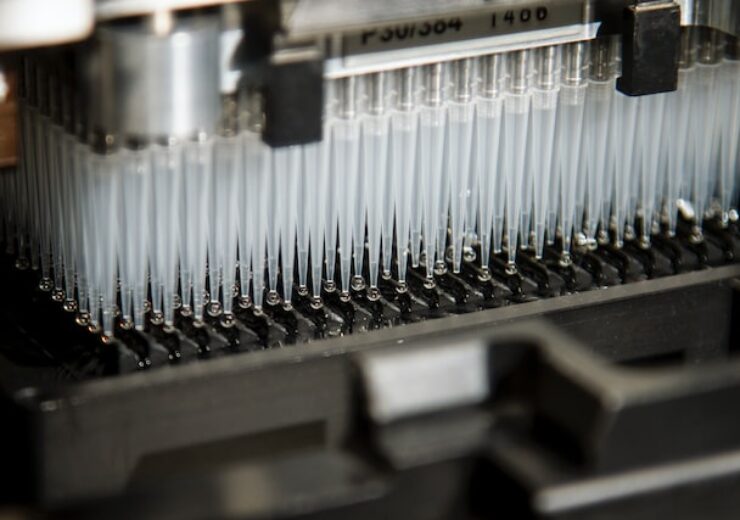The collaboration will deploy automation, large-scale genome engineering, and advanced machine learning and artificial intelligence (AI) algorithms for designing, building, and testing next-generation cell therapies for cancer

ArsenalBio, Genentech collaborate on T-Cell therapies. (Credit: National Cancer Institute on Unsplash)
US-based cell therapy company Arsenal Biosciences (ArsenalBio) and Roche’s subsidiary Genentech have entered into a multi-year collaboration to identify T-Cell therapies for oncology.
The collaboration will deploy ArsenalBio’s high-throughput T cells screening and engineering technology to identify critical success circuits in T cell-based therapies.
It will deploy automation, large-scale genome engineering, and advanced machine learning and artificial intelligence (AI) algorithms for designing, building, and testing next-generation cell therapies for cancer.
Under the terms of the agreement, ArsenalBio and Genentech will deploy synergistic capabilities to study and develop future therapeutic candidates.
Arsenal will receive $70m in upfront payments, in addition to research, development, and commercial milestones.
ArsenalBio chief executive officer Ken Drazan said: “We are proud to be working with Genentech, a pioneer in immunology, cancer, and now the application of machine learning research, to better understand how to leverage the immune system for the treatment of cancer.
“This collaboration is a testament to the strength of our platforms and their utility in identifying the attributes of T cells that offer the most promise in addressing unmet medical needs across cancer.”
According to ArsenalBio, T cell-based therapies are effective in haematological malignancies. However, solid tumours pose additional challenges, including adverse tumour microenvironment, that limit the effectiveness of adoptive T cell therapy.
ArsenalBio said that its advanced engineering platform will help create new synthetic biological programmes that will enhance T cell functions.
The platform employs an array of technologies, including high-throughput CRISPR-based gene editing, synthetic biology, and computational biology.
Its new synthetic programs will overcome the complex immunological defence systems in and around the solid tumours, said the company.
Earlier this month, ArsenalBio secured $220m in a Series B financing round, to advance its programmable cell therapy programmes into clinical development.
The financing round saw new investors Softbank Vision Fund 2, Bristol-Myers Squibb, Byers Capital, Emerson Collective Investments, Green Sands, Hitachi Ventures and Sixth Street.
Also, existing investors including Westlake Village BioPartners, Euclidean Capital, Waycross Ventures, Kleiner Perkins, and others participated in the Series B round.
